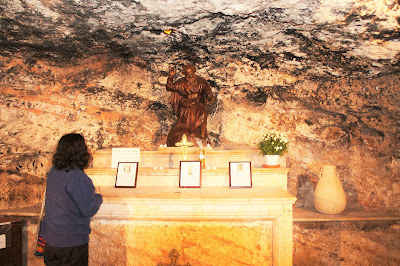Can Bishops, Priests participate with non-Christians’ religious celebration?
Dear friends, these days, there are several criticisms
and comments about some photos of priests and religious nuns’ participation in
the Hindu - festival of “Vinayka Sathurthi”. Several Christians are surprised
and stunned to see the photos of Catholic priests and religious nuns’
participation, and one step further; some are scandalized by the offering rituals
and veneration of priests before the statues of Vinayka.
Obviously, such kind of incidents will give negative
opinion among Christians.
Let me allow to give the “Teaching of the
Catholic Church” regarding Christians’ participation with non-Christians’
religious ceremonies and rituals.
Before stating from the “Church Magisterium
– Official Teaching of the Church”, let us remember the participation of
various religious people, their religious heads and Leaders of various
countries, for example the participation of Indian External Minister Mrs. Shusmasuraj
and Mr. Advani who is one of the former Senior leaders from RSS, during the Canonization
Ceremony of Mother Teresa of Calcutta in Vatican City. Participation out of
respect and to show unity and solidarity is always welcomed and it is needed in
the modern days especially where Christians live among the pluralistic
religious contexts.
The Catholic Magisterium, teaching of
the Church exhorts in the following way, using two key words: “PRUDENCE AND
LOVE”
“The Church,
therefore, exhorts her sons, that through dialogue and collaboration with the
followers of other religions carried out with prudence and love
and in witness to the Christian faith and life, they recognize, preserve and
promote the good things, spiritual and moral, as well as the socio-cultural
values found among these men”. (see. DECLARATION ON THE
RELATION OF THE CHURCH TO NON-CHRISTIAN RELIGIONS NOSTRA AETATE no 2).
Christian’s Participation
with our Hindu brethren is the need of the hour as the Church teaches as “prudent
and love” for expressing our solidarity and maintaining unity. At the same
time, giving reverence and active participation in their rituals may not be a
prudent act.
Again the Church exhorts, that “Christians should respect other religions with
respect (see. Dialogue and Proclamation, no 35). Therefore, giving
respect is different and taking active part in the rituals is different.
And let us all be prudent and love towards all.
– Fr. John Buckthese.ocd.







































